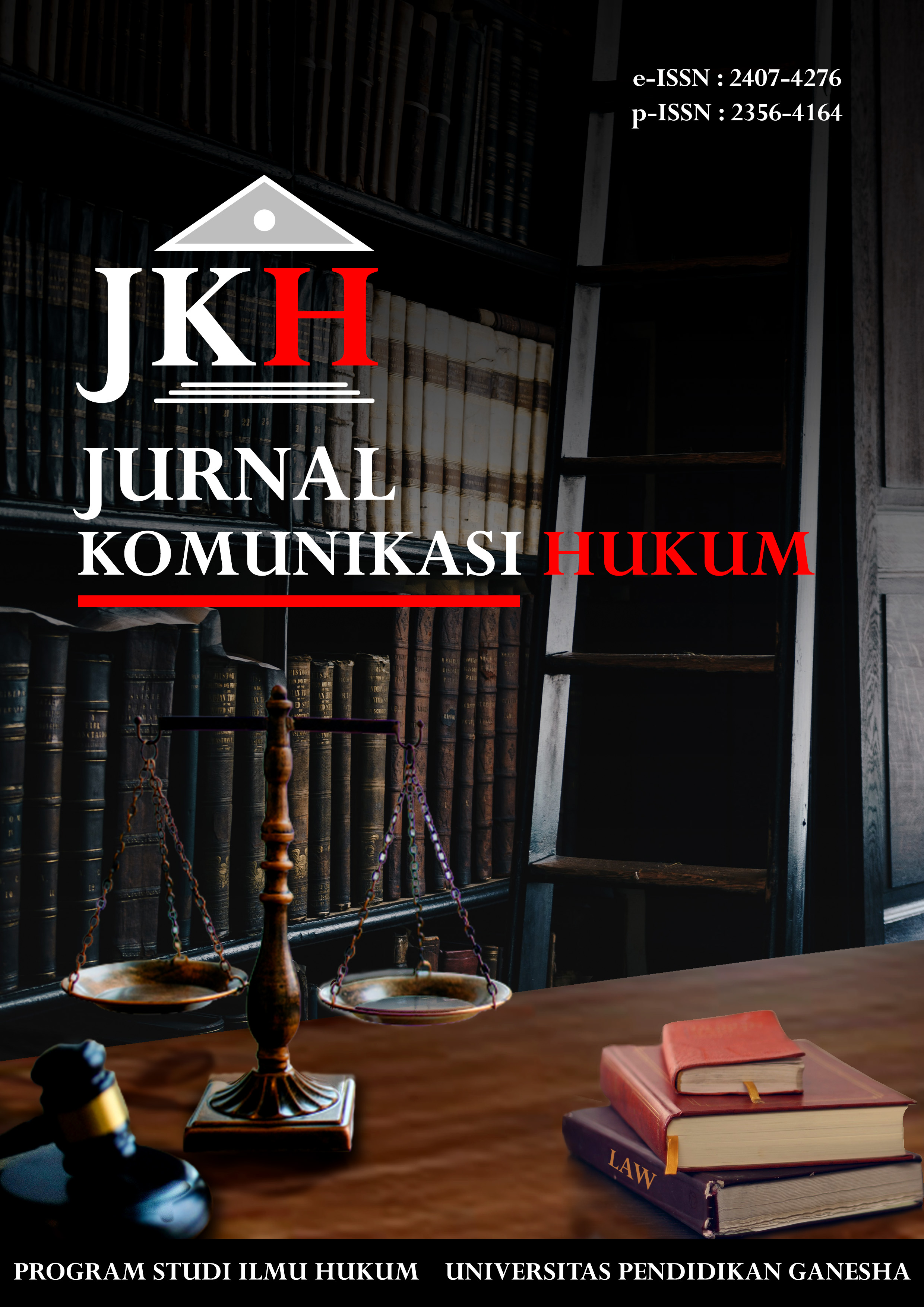Pelanggaran Inviolability Pada Diplomatic Bag Dalam Kasus Pembukaan Diplomatic Bags China Oleh Amerika Serikat, Beijing Berang
DOI:
https://doi.org/10.23887/jkh.v7i2.38568Abstract
The freedom and confidentiality of communication between diplomatic missions and sending countries is the most important privilege and immunity in diplomatic relations. The diplomatic bag is one of the many communication facilities excluded from Article 27 of the 1961 Vienna Convention on Diplomatic Relations. The form of immunity is the prohibition of the opening and detention of diplomatic bags. The existence of these exceptions often raises problems, either caused by the actions of the receiving country and / or third country and sending country. The study aims to analyze the possibility of providing "inviolability" based on the source and purpose of diplomatic pockets and the state's responsibility for the abuse of diplomats in diplomatic bag. This diplomatic bag is one of the triggers for the fracture of bilateral relations between countries that have worked together for a period of time, for example, the United States and China. The unauthoided opening of China's diplomatic pockets by the United States in 2018 and 2020 has twice led China and the United States to issue retaliatory action.
Downloads
Published
How to Cite
Issue
Section
License
Authors who publish with this journal agree to the following terms:- Authors retain copyright and grant the journal right of first publication with the work simultaneously licensed under a Creative Commons Attribution License that allows others to share the work with an acknowledgement of the work's authorship and initial publication in this journal.
- Authors are able to enter into separate, additional contractual arrangements for the non-exclusive distribution of the journal's published version of the work (e.g., post it to an institutional repository or publish it in a book), with an acknowledgement of its initial publication in this journal.
- Authors are permitted and encouraged to post their work online (e.g., in institutional repositories or on their website) prior to and during the submission process, as it can lead to productive exchanges, as well as earlier and greater citation of published work (See The Effect of Open Access).
Authors who publish with this journal agree to the following terms:
- Authors retain copyright and grant the journal right of first publication, with the work [SPECIFY PERIOD OF TIME] after publication simultaneously licensed under aCreative Commons Attribution License that allows others to share the work with an acknowledgement of the work's authorship and initial publication in this journal.
- Authors are able to enter into separate, additional contractual arrangements for the non-exclusive distribution of the journal's published version of the work (e.g., post it to an institutional repository or publish it in a book), with an acknowledgement of its initial publication in this journal.
- Authors are permitted and encouraged to post their work online (e.g., in institutional repositories or on their website) prior to and during the submission process, as it can lead to productive exchanges, as well as earlier and greater citation of published work (See The Effect of Open Access).












